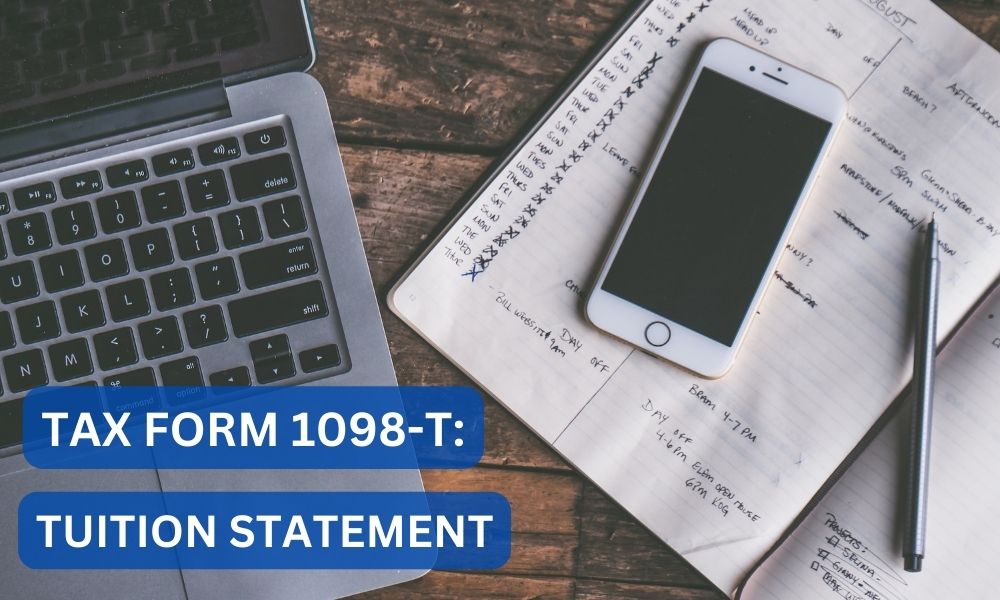When it comes to financing higher education, scholarships and grants play a crucial role in helping students cover their tuition fees and other educational expenses. However, many students and their families are often left wondering whether the scholarships or grants they receive are taxable. The confusion arises from the fact that some scholarships and grants are indeed taxable, while others are not. In this article, we will explore the topic of whether scholarships or grants on 1098-T forms are taxable, providing valuable insights and clarifications for students and their families.
Contents
Understanding the Tax Treatment of Scholarships and Grants on Form 1098-T
Before delving into the taxability of scholarships and grants, it is important to understand the purpose and significance of the 1098-T form. The 1098-T form is a document provided by educational institutions to students, which reports the amount of qualified tuition and related expenses paid during the tax year. It also includes any scholarships or grants received by the student during that period. This form is essential for students and their families when filing their tax returns, as it helps determine their eligibility for certain education-related tax benefits.
Taxability of scholarships and grants
Now, let’s address the main question at hand: are scholarships or grants on 1098-T taxable? The answer depends on how the funds are used and the specific circumstances surrounding the scholarship or grant.
Read:which statement best explains a scholarship?Qualified educational expenses
In general, scholarships and grants used for qualified educational expenses are not taxable. Qualified educational expenses include tuition fees, required books, supplies, and equipment directly related to the student’s course of study. If the scholarship or grant is used solely for these expenses, it is considered tax-free.
For example, if a student receives a scholarship of $10,000 and uses the entire amount to pay for tuition fees and required textbooks, the scholarship is not taxable. The student does not need to report it as income on their tax return.
Non-qualified expenses
On the other hand, if a scholarship or grant is used for non-qualified expenses, such as room and board, travel, or personal expenses, it may be subject to taxation. These expenses are not considered directly related to the student’s education and are therefore not eligible for tax-free treatment.
Let’s consider an example to illustrate this point. If a student receives a scholarship of $5,000 and uses $3,000 for tuition fees and $2,000 for personal expenses, only the $3,000 used for qualified educational expenses is tax-free. The remaining $2,000 used for personal expenses is considered taxable income and must be reported on the student’s tax return.
Read:Can you get scholarships for a second degree?Another important aspect to consider is whether the scholarship or grant is work-related. If a student receives a scholarship or grant in exchange for performing services, such as teaching or research, it may be subject to taxation. These types of scholarships or grants are considered compensation for work and are treated as taxable income.
For instance, if a graduate student receives a research grant of $15,000 for assisting a professor with their research project, the grant is considered taxable income. The student must report it on their tax return and pay taxes on the amount received.
Reporting scholarships and grants on tax returns
When it comes to reporting scholarships and grants on tax returns, it is important to follow the guidelines provided by the Internal Revenue Service (IRS). Here are some key points to keep in mind:
- If the scholarship or grant is tax-free, it does not need to be reported as income on the tax return.
- If the scholarship or grant is taxable, it must be reported as income on the tax return.
- Even if the scholarship or grant is tax-free, it is still necessary to report it on the tax return if it exceeds the amount of qualified educational expenses.
By accurately reporting scholarships and grants on tax returns, students and their families can ensure compliance with IRS regulations and avoid potential penalties or audits.
Read:How much Does hope scholarship pay per semester?Case studies and statistics
Let’s take a look at some case studies and statistics to further illustrate the taxability of scholarships and grants on 1098-T forms.
Case study 1: Tax-free scholarship
Emily is a college student who receives a scholarship of $8,000. She uses the entire amount to pay for tuition fees and required textbooks. Since the scholarship is used for qualified educational expenses, it is tax-free. Emily does not need to report it as income on her tax return.
Case study 2: Taxable scholarship
John is a graduate student who receives a scholarship of $12,000. He uses $8,000 for tuition fees and $4,000 for personal expenses. Only the $8,000 used for qualified educational expenses is tax-free. The remaining $4,000 used for personal expenses is considered taxable income and must be reported on John’s tax return.
Statistics on scholarships and grants
According to the National Center for Education Statistics, in the 2018-2019 academic year, approximately 85% of undergraduate students received some form of financial aid, including scholarships and grants. This highlights the importance of understanding the tax implications of these financial resources.
Furthermore, a study conducted by Sallie Mae, a leading provider of student loans, revealed that scholarships and grants covered 28% of college costs for undergraduate students in the 2019-2020 academic year. This demonstrates the significant role scholarships and grants play in making higher education more affordable for students and their families.
Summary:
When it comes to the taxability of scholarships and grants on 1098-T forms, it is crucial to consider how the funds are used and the specific circumstances surrounding the scholarship or grant. Scholarships and grants used for qualified educational expenses are generally not taxable, while those used for non-qualified expenses or received in exchange for work may be subject to taxation. By accurately reporting scholarships and grants on tax returns, students and their families can ensure compliance with IRS regulations and make informed financial decisions.
Understanding the tax implications of scholarships and grants is essential for students and their families as they navigate the complex landscape of financing higher education. By being aware of the taxability of these financial resources, students can make informed decisions about their educational expenses and maximize their eligibility for education-related tax benefits.









